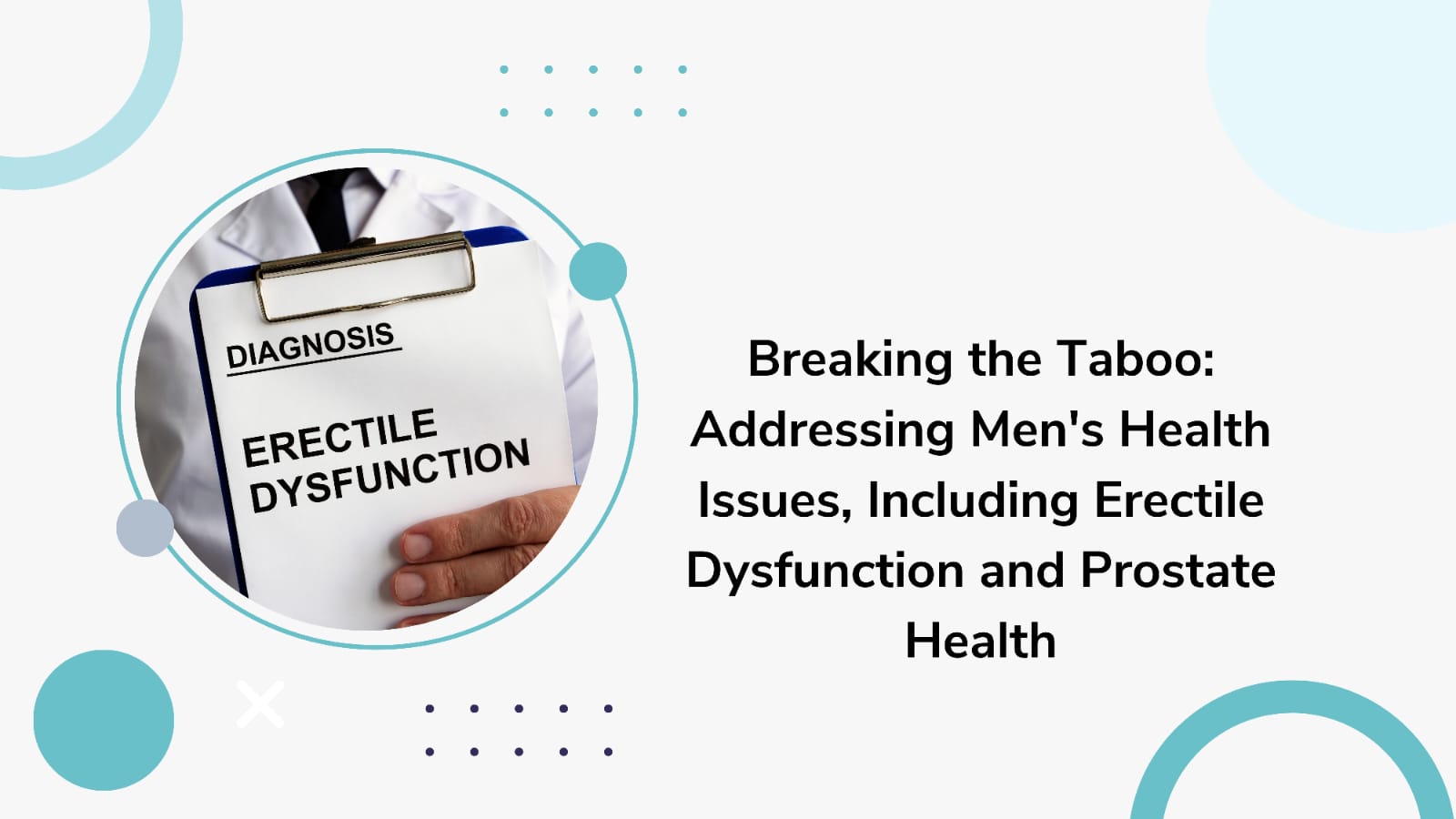Men’s health has long been a topic shrouded in silence and stigma. However, by shedding light on issues such as erectile dysfunction (ED) and prostate health, we can empower men to prioritize their well-being and seek the support they need for a healthier future. In this blog, we delve into the importance of addressing men’s health issues, including common concerns such as ED and prostate health, and provide guidance on seeking appropriate care and support.
Understanding Men’s Health Concerns
Men often face unique health challenges that may go unaddressed due to societal norms and reluctance to seek medical attention. Among the most prevalent concerns are erectile dysfunction and prostate health issues, which can significantly impact quality of life and overall well-being.
- Erectile Dysfunction (ED): ED is a common condition characterized by the inability to achieve or maintain an erection sufficient for sexual activity. While it can occur at any age, it becomes more prevalent with age and may be indicative of underlying health conditions such as cardiovascular disease, diabetes, or psychological factors.
- Prostate Health: The prostate gland, located below the bladder and surrounding the urethra, plays a crucial role in male reproductive health. Prostate issues, including benign prostatic hyperplasia (BPH) and prostate cancer, are common concerns among men, particularly as they age.
Breaking the Silence: Why Men’s Health Matters
Addressing men’s health issues is essential for promoting overall well-being and longevity. By confronting stigma and encouraging open dialogue, men can access the support and resources needed to manage and prevent health conditions effectively. Here’s why men’s health matters:
- Quality of Life: Addressing men’s health concerns, including ED and prostate issues, can significantly improve quality of life and enhance intimate relationships.
- Early Detection: Timely detection and intervention are crucial for managing conditions such as prostate cancer, where early diagnosis greatly improves treatment outcomes.
- Preventive Care: By prioritizing preventive care and adopting healthy lifestyle habits, men can reduce their risk of developing chronic conditions and enjoy better long-term health.
Seeking Support and Treatment Options
If you or a loved one is experiencing men’s health issues, it’s essential to seek support and guidance from healthcare professionals. Here are steps you can take:
- Open Communication: Foster open and honest communication with healthcare providers, partners, and loved ones about men’s health concerns. Discussing these issues openly can help alleviate stigma and facilitate access to appropriate care.
- Medical Evaluation: Schedule regular check-ups with a healthcare provider to monitor overall health and discuss any concerning symptoms or changes. Medical evaluation may include screenings for prostate cancer, blood tests, and discussions about erectile function.
- Treatment Options: Various treatment options are available for men’s health issues, including medications, lifestyle modifications, surgical interventions, and counseling or therapy for psychological factors contributing to ED.
- Support Networks: Seek out support groups, online forums, or community organizations dedicated to men’s health issues. Connecting with others facing similar challenges can provide valuable support, encouragement, and insights into managing health concerns effectively.
Embracing a Culture of Wellness
Breaking the taboo surrounding men’s health issues requires a collective effort to promote awareness, education, and access to care. By embracing a culture of wellness that prioritizes proactive healthcare and destigmatizes conversations about men’s health, we can empower individuals to take charge of their well-being and lead fulfilling lives.


